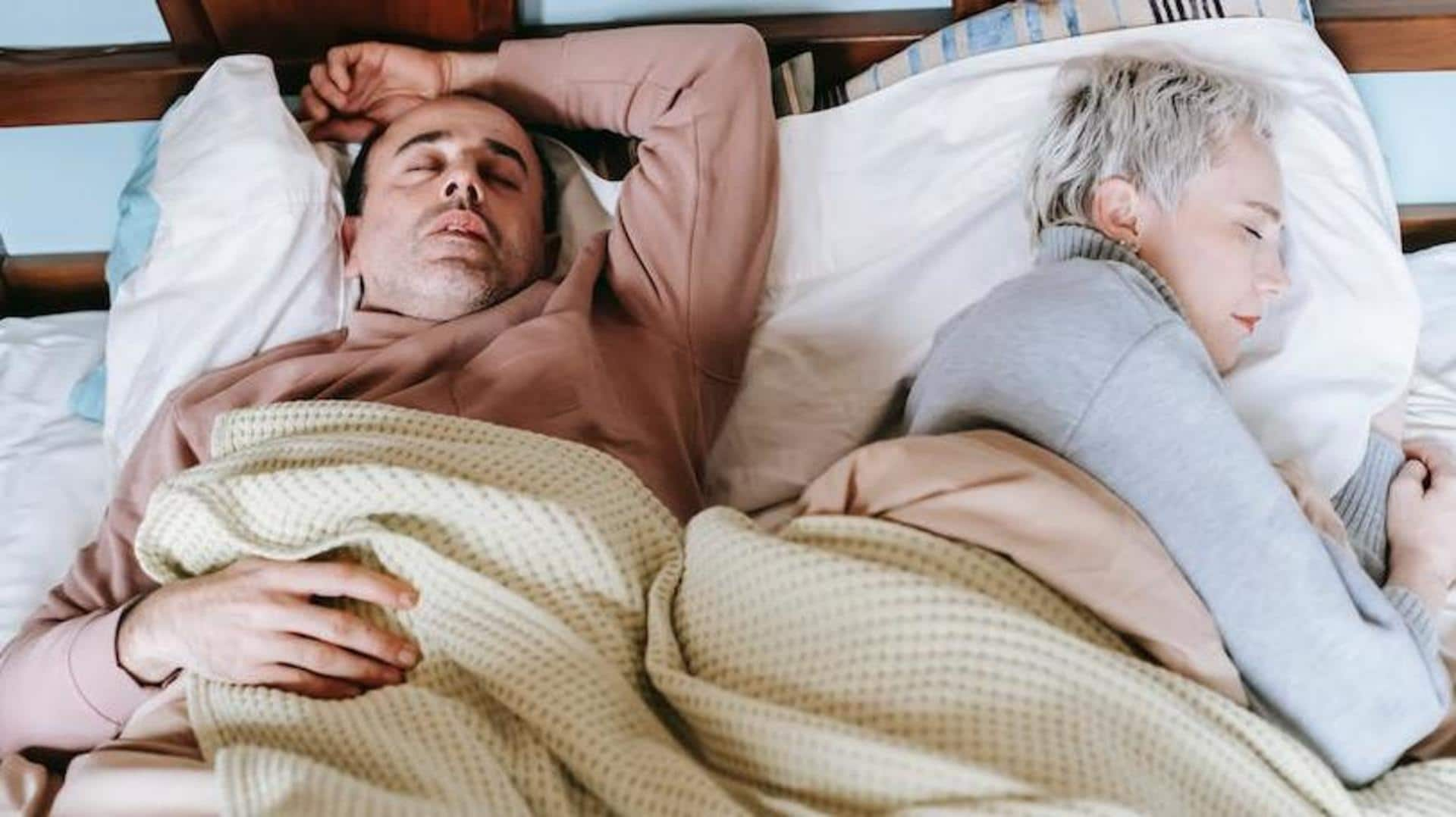
Insufficient sleep can shrink the cognitive benefits of exercise: Study
What's the story
While good exercise and sleep are among the most important habits to achieve a healthy body, did you know that these factors are interconnected? A new study found that people who slept fewer than six hours and are engaged in more frequent intense physical activity experienced a greater rate of general cognitive deterioration than those who get little sleep but engage in regular exercise.
Getting sufficient sleep
Getting sufficient sleep is necessary
The study conducted by University College London (UCT) researchers highlights the importance of combining adequate sleep and physical activity for improved cognitive health. "Our study suggests that getting sufficient sleep may be required for us to get the full cognitive benefits of physical activity," lead author and research fellow at the Institute of Epidemiology and Health Care, UCT, Dr. Mikaela Bloomberg told CNN.
Decade-long research
The research was conducted for over a decade
The study has been conducted for over a decade. The researchers tracked almost 9,000 adults who took part in the English Longitudinal Study of Ageing, a longitudinal study on people over 50 financed by the United Kingdom government and the US National Institute on Aging. Every two years, participants get a follow-up interview and cognitive tests in addition to their initial examination.
The trend changed over the dacade
The sleep trends changed over the years
The study published in The Lancet Healthy Longevity stated that regardless of how much sleep participants received the night before, those who engaged in greater physical activity also had a superior cognitive function. Over the course of the ten years, this altered, with more physically active short sleepers (less than six hours) experiencing a more rapid decrease in cognitive function.
Old age
Identifying the factors is key
For individuals in their 50s and 60s, this quick drop was real, but for older participants, typically in their 70s, the cognitive advantages of exercise were maintained, despite short sleep. Co-author Professor Andrew Steptoe emphasizes the importance of identifying the factors that can protect cognitive function in middle and later life "as they can serve to prolong our cognitively healthy years."
Comparison
Comparison with older studies
Comparing the study with previous similar studies, Dr. Bloomberg told CNN, "We were surprised that regular physical activity may not always be sufficient to counter the long-term effects of lack of sleep on cognitive health." The previous studies were more focused on how physical activity, sleep, and other lifestyle factors can improve cognitive function and reduce the risk for dementia.
Conclusion
Concluding statements
The authors concluded their observation by saying, "Our results suggest the importance of considering physical activity and sleep together, as these factors might combine in complex ways to influence cognitive trajectories from age 50 years onwards." Going further, the researchers wish to examine more diverse populations and more cognitive domains while implementing other objective measures such as the wearable physical activity tracker.